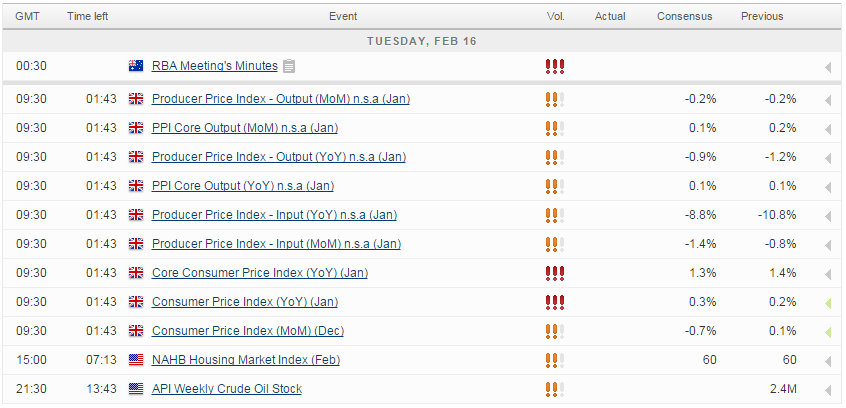Oil is trading higher again this morning following reports that Saudi Arabia’s oil minister will meet with his Russian counterpart in Doha today, along with ministers from Qatar and Venezuela, to discuss the possibility of production cuts. Assuming these reports are accurate, it would appear that there was actually some substance to suggestions by the UAE energy minister last week that OPEC is open to discussing cuts, which given the number of false claims prior to this, actually comes as a surprise.
While this is a big step forward given the previous stance by both the Saudi’s and the Russians on maintaining production in the face of tumbling revenues, there remains a number of hurdles to overcome before a deal is actually agreed. Not only do Iraq and Iran intend to increase output but it seems unlikely that any production cut that would offer some advantage to the U.S. shale industry would be considered. Unless of course if the planned cuts would coincide with the anticipated reduction in U.S. output this year, thereby not reducing market share in the process. Whatever the process, there remains a long way to go.
Minutes from the Reserve Bank of Australia meeting overnight were relatively neutral, with the central bank optimistic that economic growth will pick up while stressing that there remains room for further rate cuts should they be necessary. This cautious optimism from the central bank make the prospect of further rate cuts over the next couple of quarters unlikely at this stage, but that can change very quickly, particularly in the current economic environment. The RBA may be content with the exchange rate for now, for example, but with central banks all over the world now experimenting with negative rates, that may not last very long.
With the U.S. returning following the Presidents’ Day bank holiday on Monday, things should pick up a little today. This morning we’ll get CPI inflation data from the U.K., which is expected to continue to edge away from deflation territory, rising to 0.3%. This is likely to continue in the months ahead as the initial decline in oil prices falls out of the year on year comparison, although with prices remaining very low and actually hitting new multi-year lows in the process, the rebound may not actually be quite as strong as initially thought. Core inflation is expected to edge lower to 1.3%.
This will be followed by ZEW economic sentiment readings from Germany and the eurozone for February, both of which are expected to show sharp declines. The slowdown in emerging markets is likely to weigh on industry this year while weakness in global trade should result in challenging conditions for exporters.

For a look at all of today’s economic events, check out our economic calendar.
Content is for general information purposes only. It is not investment advice or a solution to buy or sell securities. Opinions are the authors; not necessarily that of OANDA Business Information & Services, Inc. or any of its affiliates, subsidiaries, officers or directors. If you would like to reproduce or redistribute any of the content found on MarketPulse, an award winning forex, commodities and global indices analysis and news site service produced by OANDA Business Information & Services, Inc., please access the RSS feed or contact us at info@marketpulse.com. Visit https://www.marketpulse.com/ to find out more about the beat of the global markets. © 2023 OANDA Business Information & Services Inc.



